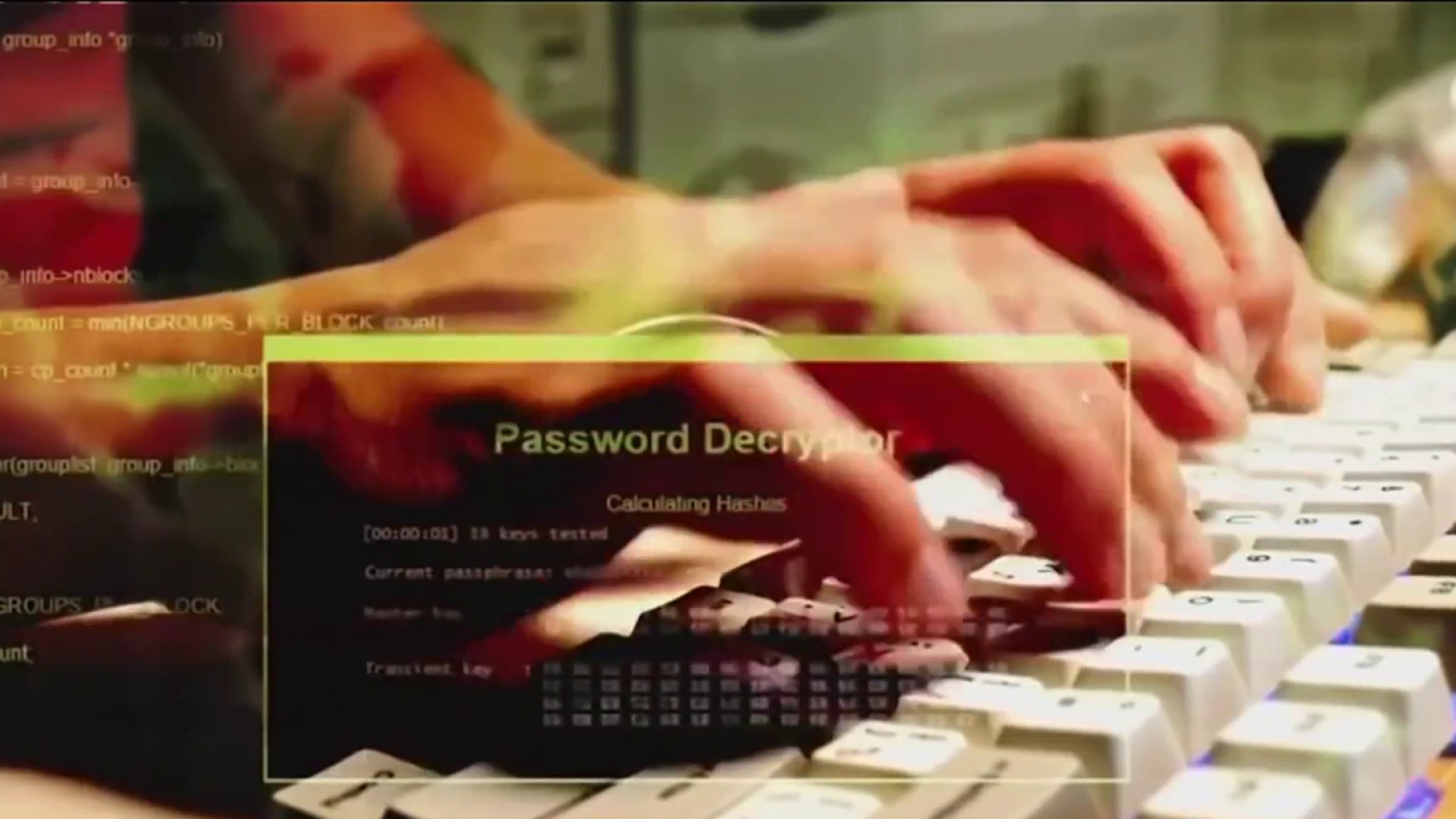AI Text Scam Alert! FBI Warning: Protect Yourself Now!
AI Scam Alert: FBI Warns of Text & Voicemail Fraud!
Introduction: Are You the Next AI Scam Target?
Ever gotten a text or voicemail that just felt… off? Like something wasn't quite right? Well, you might be onto something. The FBI is sounding the alarm on a new type of scam: AI-powered fraud using text messages and voicemails. These aren't your grandma's phishing attempts; they're sophisticated, convincing, and potentially devastating. So, how can you protect yourself? Let's dive in!
The AI Scam Playbook: How They Hook You
These scammers aren't just randomly dialing numbers. They're using AI to craft personalized messages, making them sound incredibly legitimate. But how do they do it?
Impersonating Authority: Playing the Government Card
One of the most common tactics is impersonating government officials. Imagine getting a text claiming to be from the Social Security Administration, warning that your account has been compromised. Scary, right? That's the point. They prey on your fear and sense of obligation.
Creating Urgency: "You Owe Money!"
Another classic move is creating a sense of urgency. "You owe money to a bank!" Or, "The FBI is looking for you!" These messages are designed to make you panic and react without thinking. Think of it like a pressure cooker – they're turning up the heat to make you crack.
What Happens If You Respond? The Downward Spiral
Curiosity killed the cat, and in this case, responding to one of these scams can be equally dangerous. So, what happens if you take the bait?
The Information Hunt: Digging for Personal Data
Once you respond, the scammers will try to extract personal information from you. This is their ultimate goal. They might ask for your Social Security number, bank account details, or other sensitive data that can be used to steal your identity or drain your finances.
Platform Switching: Moving to a "Secure" Channel
Often, they'll try to move the conversation to a separate messaging platform, claiming it's more secure. Don't fall for it! This is just a way to avoid detection and operate outside of the scrutiny of your regular messaging apps.
Expert Advice: How to Dodge the AI Scam Bullet
Okay, so now you know what to look for. But how can you actively protect yourself? Here's some expert advice to keep you safe:
Don't Respond! Silence is Golden
The first and most important rule is: don't respond to suspicious messages or voicemails. Even acknowledging them can confirm that your number is active and make you a target for future scams.
Verify, Verify, Verify! Go Back to the Source
Instead of reacting to the message, go back to the source. If it's supposedly from the Social Security Administration, contact them directly through their official website or phone number. Don't use the contact information provided in the suspicious message. That's a direct line to the scammers!
Spotting the Red Flags: Warning Signs to Watch For
Even with AI advancements, there are still telltale signs that can help you identify these scams.
Generic Greetings: "Dear Customer"
Be wary of generic greetings like "Dear Customer" or "To Whom It May Concern." Legitimate organizations usually know your name and will address you accordingly.
Poor Grammar and Spelling: A Sign of Incompetence (or a Scam)
While AI is getting better at generating text, scammers aren't always the most sophisticated users. Look for poor grammar, spelling errors, and awkward phrasing. These are often dead giveaways.
Requests for Immediate Action: "Act Now or Else!"
Any message that demands immediate action or threatens negative consequences if you don't comply should be treated with extreme suspicion. Scammers want to pressure you into making a mistake.
The Technology Behind the Scam: AI's Role in Fraud
Let's take a closer look at the technology powering these scams. AI is making it easier than ever for criminals to impersonate individuals and organizations.
Deepfakes and Voice Cloning: Impersonation Made Easy
Deepfakes and voice cloning technology can be used to create incredibly realistic audio and video impersonations. Imagine receiving a voicemail from someone you know, asking for money. It could be a deepfake!
AI-Generated Text: Crafting Believable Messages
AI can also be used to generate convincing text messages and emails. These messages can be tailored to your specific interests and vulnerabilities, making them even more effective.
Protecting Yourself: Practical Steps You Can Take Right Now
So, what can you do to protect yourself from these AI-powered scams? Here are some practical steps you can take right now:
Enable Two-Factor Authentication: Adding an Extra Layer of Security
Enable two-factor authentication (2FA) on all your important accounts. This adds an extra layer of security, making it much harder for scammers to access your information even if they have your password.
Use Strong, Unique Passwords: Don't Reuse Passwords!
Use strong, unique passwords for each of your online accounts. Don't reuse passwords! If one account is compromised, all your other accounts could be at risk.
Be Skeptical of Unsolicited Communications: When in Doubt, Throw It Out!
Be skeptical of unsolicited communications, especially those that ask for personal information or money. If it sounds too good to be true, it probably is.
Keep Your Software Updated: Patching Security Vulnerabilities
Keep your software updated with the latest security patches. These patches often address vulnerabilities that scammers can exploit.
Reporting Scams: Helping to Fight Back
If you think you've been targeted by an AI scam, it's important to report it. Reporting scams helps law enforcement track down the perpetrators and prevent others from becoming victims.
Reporting to the FBI: Filing a Complaint
You can report scams to the FBI's Internet Crime Complaint Center (IC3). This helps the FBI track and investigate cybercrime.
Reporting to the FTC: Warning Others
You can also report scams to the Federal Trade Commission (FTC). The FTC uses these reports to build cases against scammers and warn the public about emerging threats.
The Future of AI Scams: What to Expect
Unfortunately, AI scams are only going to become more sophisticated in the future. As AI technology advances, it will become harder to distinguish between legitimate communications and fraudulent ones. What can we expect to see?
More Realistic Impersonations: Harder to Detect
Expect to see more realistic impersonations of individuals and organizations. Deepfakes will become more convincing, and AI-generated text will become more natural and human-like.
More Personalized Attacks: Targeting Your Weaknesses
Scams will become more personalized, targeting your specific interests, vulnerabilities, and relationships. This will make them even more effective at tricking you into giving up your personal information or money.
Conclusion: Stay Vigilant and Informed
The FBI's warning about AI scams using text messages and voicemails is a serious one. These scams are becoming more sophisticated and harder to detect. However, by staying vigilant, informed, and following the tips outlined in this article, you can protect yourself and your loved ones from becoming victims. Remember, silence is golden, verify everything, and never give out personal information to unsolicited sources. Stay safe out there!
Frequently Asked Questions (FAQs)
Here are some frequently asked questions about AI scams and how to protect yourself:
- What is "vishing"? Vishing is voice phishing, a type of phone scam where criminals try to trick you into giving them your personal information or money by impersonating a legitimate organization or individual. AI is now being used to make vishing calls even more convincing.
- How can I tell if a text message is a scam? Look for red flags like generic greetings, poor grammar, spelling errors, requests for immediate action, and unsolicited requests for personal information. If something feels off, trust your gut and don't respond.
- What should I do if I accidentally gave a scammer my personal information? Immediately contact the relevant institutions (e.g., your bank, credit card company) and report the incident. Change your passwords and monitor your accounts for any suspicious activity. You may also want to consider placing a fraud alert on your credit report.
- Are AI scams only happening through text messages and voicemails? No. While the FBI warning focuses on text messages and voicemails, AI scams can also occur through email, social media, and even in-person interactions. The key is to be vigilant and skeptical of any unsolicited communication, regardless of the medium.
- Is there any way to completely eliminate the risk of being targeted by an AI scam? Unfortunately, there is no way to completely eliminate the risk. Scammers are constantly evolving their tactics. However, by staying informed, being cautious, and following security best practices, you can significantly reduce your risk of becoming a victim.

